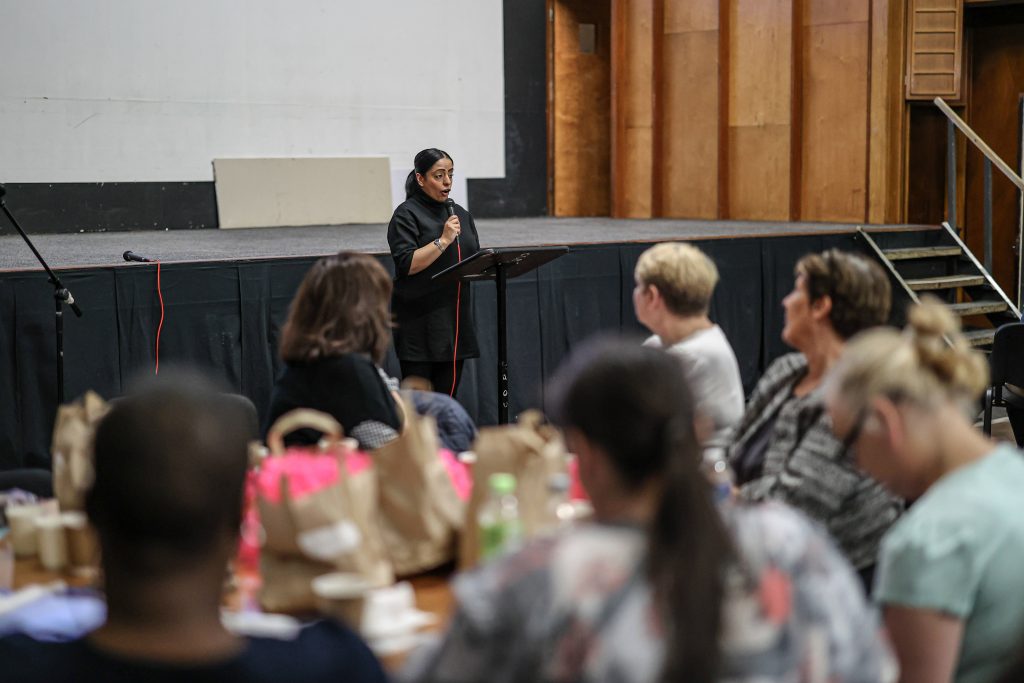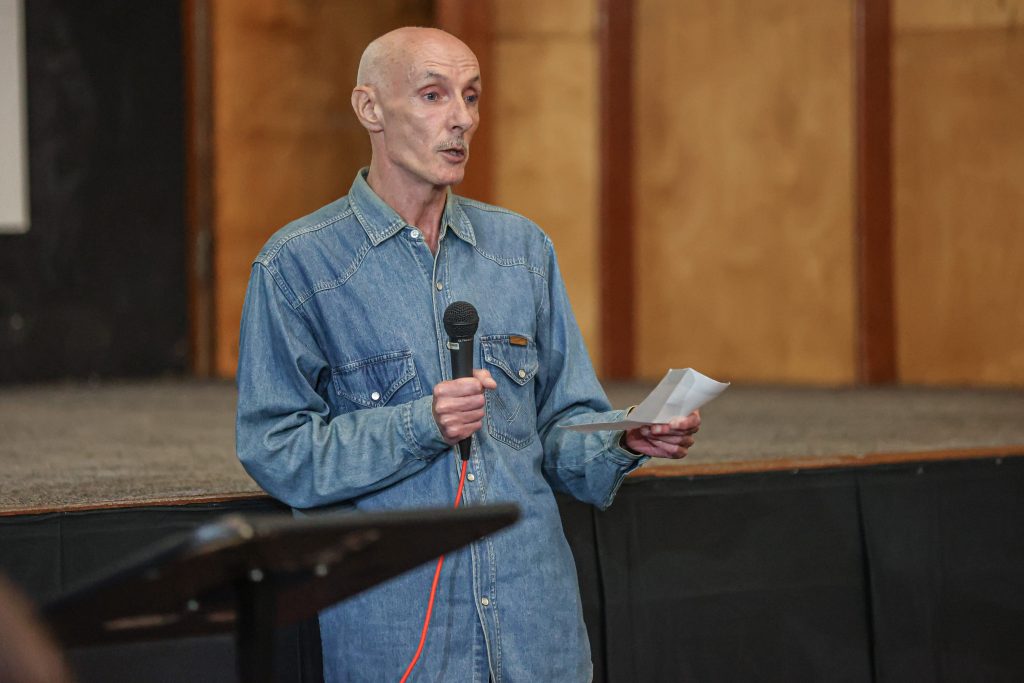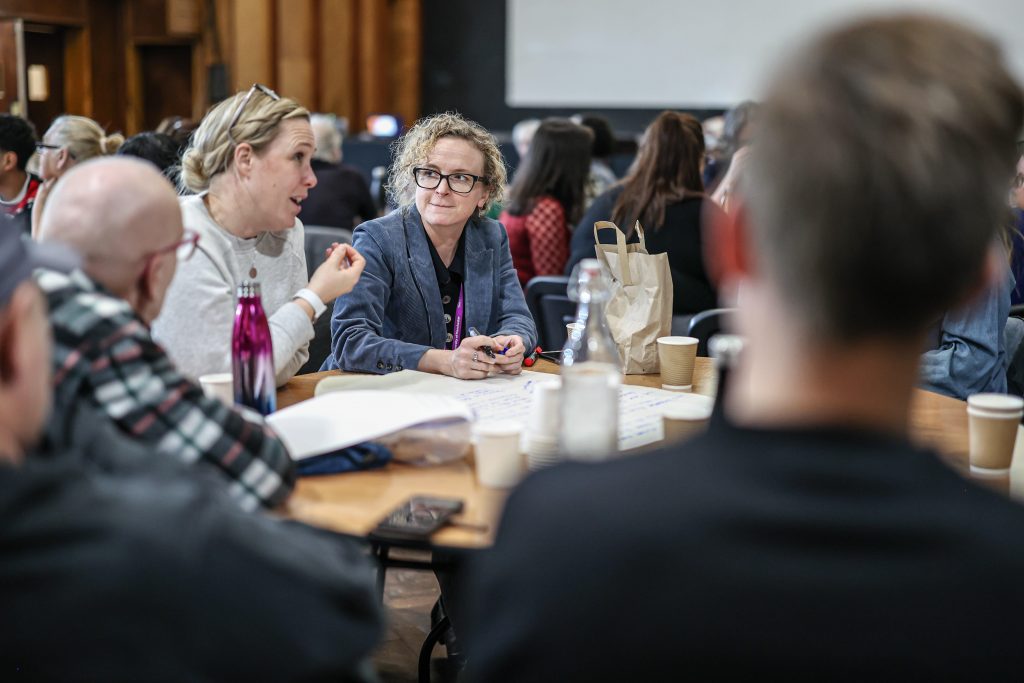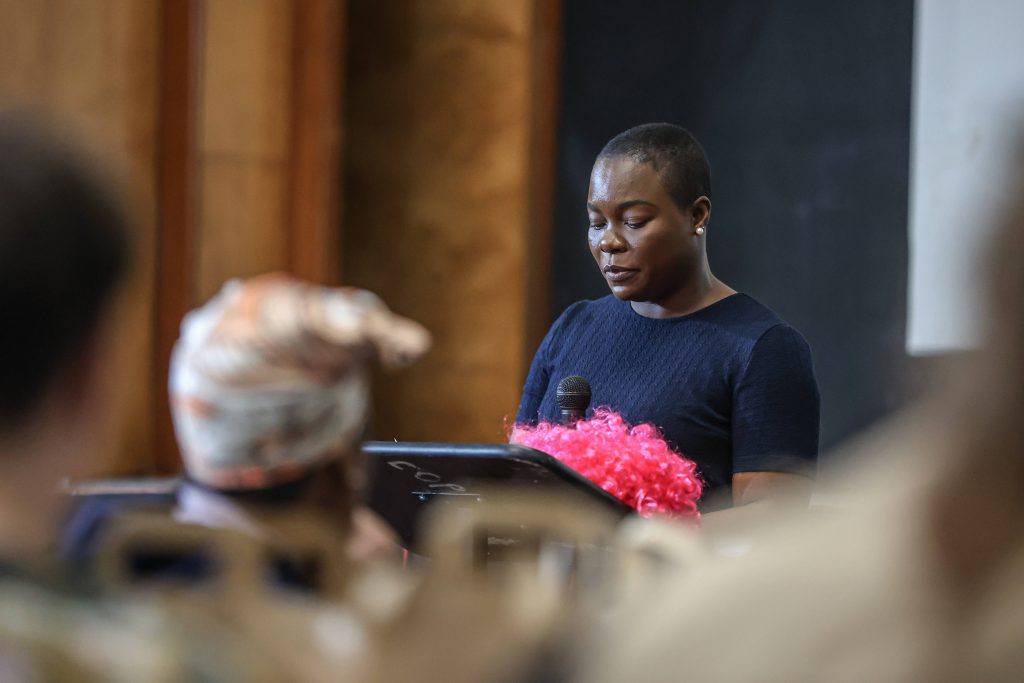Hundreds challenge poverty as action week begins
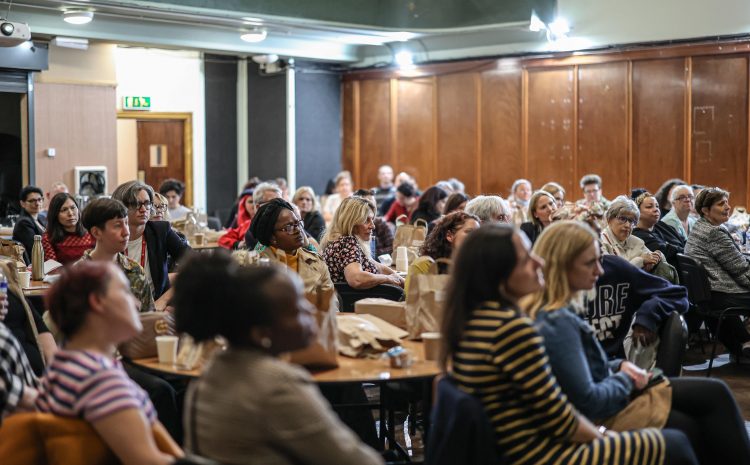
Challenge Poverty Week England & Wales has begun, with hundreds of people taking part.
- Around 100 people including many with first-hand experience of poverty gathered in Manchester on Monday to discuss solutions.
- Almost 600 people have written to their MPs and councillors, asking what they are doing to tackle the root causes of poverty.
- The Archbishop of York Stephen Cottrell backed the week, saying “the voices of people in poverty need to become more audible and influential in public debate”.
The Greater Manchester Big Poverty Conversation took place in Central Hall on Monday afternoon, organised by Greater Manchester Combined Authorities in partnership with Church Action on Poverty.
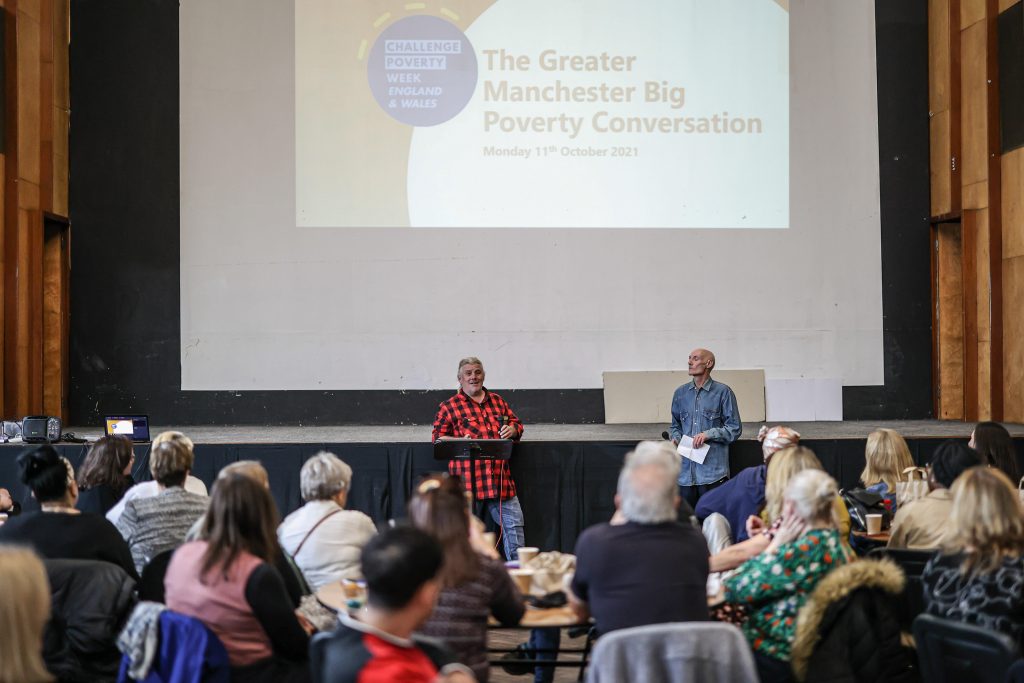
Niall Cooper, the charity’s director, said:
“It is great to see so many people and groups taking part in Challenge Poverty Week. We know a more just and compassionate society is possible, if we tackle the big underlying injustices that hold so many people back.”
Speakers at the event included Nadine Travers, a member of Manchester Poverty Truth Commission. She said:
“I think it’s vital that we challenge poverty, because people living in it are often unaware they are living in poverty, or shame and stigma mean individuals are blamed for poverty, rather than policies that are quite oppressive often.”
Oldham council leader Arooj Shah said:
“I think it’s really important for places like Oldham to make sure we are having open, honest and bold conversations around poverty. That means not just academics and professionals sitting around a room; it means we listen to the real life experiences of people who live poverty every single day of their lives and we listen to those conversations and shape our policy to ensure we have an impact.”
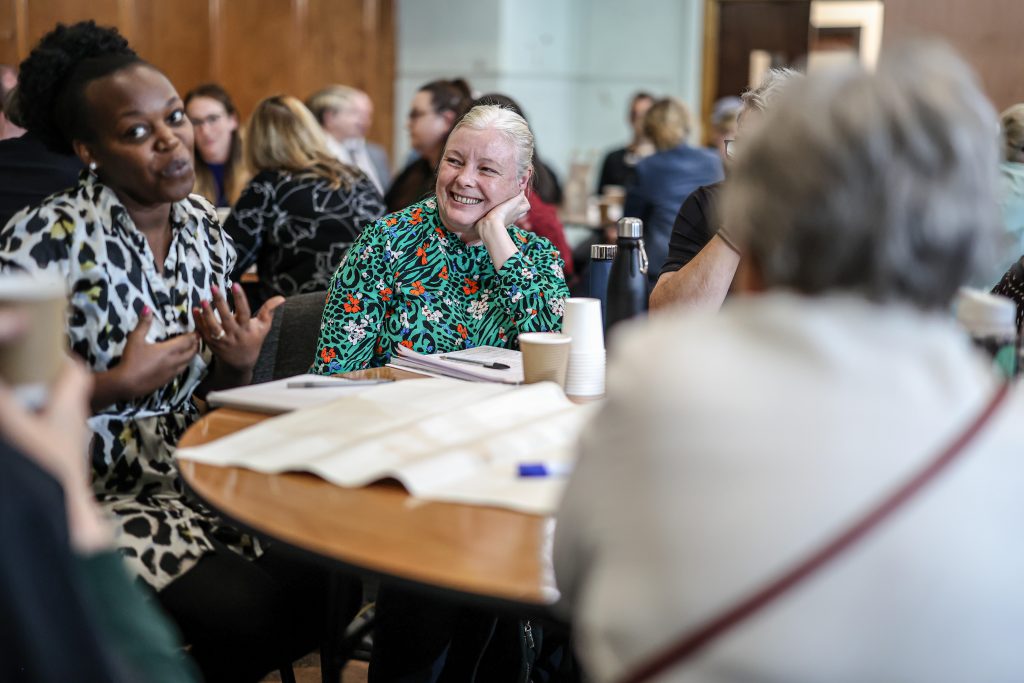
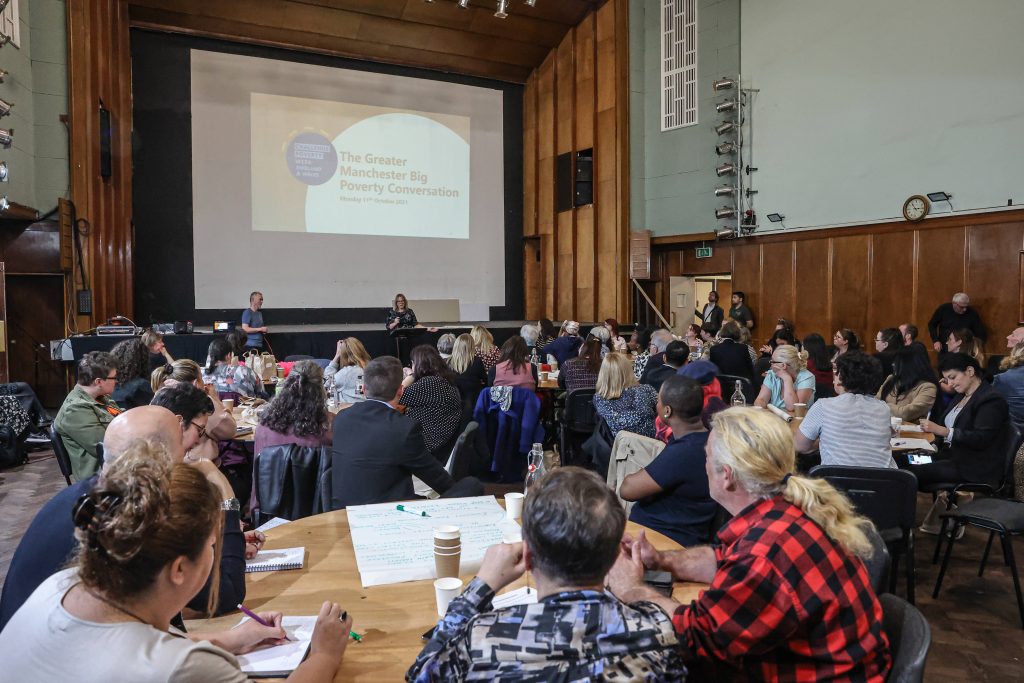
Writing in The Yorkshire Post on Monday, the Archbishop of York wrote:
“We must resolve to find ways to redesign our economic systems, to loosen poverty’s grip, so everyone can live a full and dignified life. We cannot and must not have a recovery where the wealthy can speed off down the fast lane, while others are left broken down on the hard shoulder.
“The Bible teaches us to love our neighbours, and to treat them as we would like to be treated. In the book of James, we are cautioned against showing hospitality or favouritism to wealthy guests while neglecting poor ones. Too often though, isn’t that what some of our ingrained systems do? People with first-hand experience and insight of poverty are left out of key discussions.”
He said many problems, such as around Universal Credit or school food provision, could have been averted if people in poverty were part of the discussion from the outset.
More photos from Monday’s Big Poverty Conversation in Manchester:
